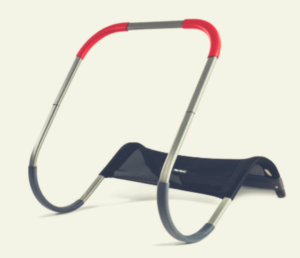Glycogen isn’t often talked about in the fitness world. But, it’s important depending on the type of athlete you are.
For most beginners or people that are relatively active, it’s not as important to you if you eat properly.
However, those that are seriously into fitness should concern themselves with low glycogen levels or depletion because it affects performance, strength, muscle growth, and power.
All About Glycogen
Carbohydrates often get a bad rep. You’ll hear people say that going no-carb or low-carb is ideal for weight loss and to helps them burn more fat.
They aren’t wrong.
However, it’s not a sustainable way of life for those that are into serious fitness.
There’s a reason many bodybuilders, powerlifters, runners, and CrossFit goers consume a lot of calories and carbs.
They fuel their body and their workouts! But how do carbs fuel the body for optimal performance?
When you eat carbohydrates, your body breaks them down and converts them to sugar. This sugar is called glucose.
Glucose is the body’s main source of fuel. When you have extra glucose, your body stores it in the liver and the muscles for future uses. This type of glucose is called glycogen.
When your body needs energy or isn’t getting what it needs from food, it will tap into the glycogen storage.
The glycogen will then break down and release glucose into the bloodstream.
In short, glycogen is the primary fuel source for muscles during any strenuous physical activity like weightlifting, powerlifting, or competitive levels of fitness like CrossFit, football, or soccer.
Low glycogen levels have been shown to cause a variety of physiological issues. What type of issues?
You’ll feel more fatigued, with higher exhaustion rates when performing strenuous exercise, and it can interfere with your ability to maintain higher levels of anaerobic capacity.
But more on how it can affect your athletic performance later.
Who Should Care About Glycogen Depletion?
Low glycogen doesn’t affect most people. Many people will benefit from a healthy balanced diet of calories, fats, protein, and carbohydrates.
A healthy diet will allow people to maintain a steady level of glycogen. When does it become an issue?
Serious Athletes
Realistically, serious athletes, CrossFit goers, bodybuilders, or powerlifters should be aware of their glycogen levels.
Beginners and intermediate fitness people don’t need to take as much caution with it.
Generally, they can get by on a proper diet, a good sleep schedule, keeping themselves hydrated, and training properly.
Why?
Beginners and those who train at the intermediate level don’t train nearly as hard or as often as a serious athlete.
Some beginners might suffer from muscle fatigue which usually happens because of several factors like poor sleep, stress, poor recovery, or difficulty with their training program.
Not all athletes are the same when it comes to glycogen usage.
Powerlifters and Strength Trainers
Powerlifters and strength trainers don’t need to focus on glycogen as much provided they keep up with their caloric and carbohydrate needs.
At certain times they may need to train harder for competitions or drop weight for their weight class.
During higher intensity training times, they must consume more carbs and calories to replenish what’s lost and aid in recovery.
Bodybuilders often consume adequate nutrition to avoid depletion and aid with recovery and fuel training sessions.
Competitive Bodybuilding
Competitive bodybuilders need to ensure they’re getting optimal carbs for replenishment and recovery.
Some competitive bodybuilders who practice dieting and train at high intensities and higher volumes could benefit from more carbs.
Endurance athletes rely mostly on aerobic and anaerobic processes to produce energy and fuel the body.
However, when training at higher intensities around 75%-80% of VO2, there’s an increase in carbohydrate utilization to fuel the body.
This process is referred to as the ventilatory threshold.
Endurance Athletes
Endurance athletes or those who train at or below the ventilatory threshold are fueled by the aerobic processes that oxidize fats to fuel the body.
While you’ll still need to consume carbs to activate the fat oxidation process, it’s not necessary to consume amounts that other types of athletes need.
Usually, these types of athletes eat sufficiently enough and train less than 60 minutes per session where carb loading isn’t needed.
However, this isn’t true for all endurance athletes.
Some endurance athletes like half-marathon, marathons, and ultras are recommended to consume carbs at various intervals.
Ingesting carbs are beneficial for prolonged training sessions and performance.
Fast-digesting carbs help to reduce glycogen depletion because it can be used as an immediate fuel source and save glycogen stores for future uses.
Endurance athletes that train at or above the ventilatory threshold will need more carbs.
These athletes train at a much higher intensity and for longer blocks or more sessions throughout the day.
High-Intensity Training
Training at higher intensities like this can benefit from the replenishment of the glycogen stores.
Those into competitive fitness or CrossFit need to focus on their glycogen. These types of athletes train at higher intensities and higher volume.
The average CrossFit goer or competitive athletes may get by on a proper diet and lifestyle.
However, this may change during training seasons or competition times. There are also those in the community who take fitness more seriously than others.
They might train multiple times a day for longer periods or train multiple times at higher volumes.
Those that train this way might want to increase their glycogen levels for faster recovery times and to avoid depletion.
Now, your diet will also depend on a few factors. You may have a competition coming up and will need every more carbs and protein.
You might have to “cut” or lose weight if you’re in a certain weight class.
In that case, you might want to focus your diet in a way that you’re not depleting your glycogen stores but are still training at the level you need to; also eating to make sure you’re losing weight.

How Should I Eat to Avoid Depletion?
This will depend on the type of athlete you are.
Beginners, intermediate, recreational lifters, or people who exercise here or there don’t need to worry about glycogen depletion.
Why?
They tend to eat just enough to supply the body with what it needs.
Post-Workout Nutrition
For most competitive athletes, research has shown that increasing your carbs and proteins after a strenuous session improves muscle performance and function, and aerobic performance in future sessions.
Research has found that consuming 0.8g of carbs per body mass post-exercise.
To increase glycogen synthesis, an additional 0.4g of carbs per body mass consumed every 30 minutes when performing strenuous training.
For protein synthesis, it’s recommended to consume around 0.4g of protein per body mass after every strenuous training session.
Strength athletes train hard and when they train hard, they use glycogen to fuel their movements like deadlifts and squats.
Without adequate amounts of glycogen, the body might have a harder time performing these movements.
Your muscles might give up halfway through the movement or you might be unable to even lift at all.
This can happen even if you’re used to your training program or were able to lift similar volume days prior.
Avoiding Muscle Breakdown
Research shows that consuming carbs post-workout, mainly fast-digesting carbs, significantly increases plasma insulin levels.
This increases protein synthesis by up to 36% compared to only exercising.
Muscle breakdowns were less likely following carbohydrate consumption after a hard training session.
This promotes muscle growth.
However, it isn’t just carbs that help promote muscle growth and glycogen levels.
Research has found that the combination of both carbs and protein after a strenuous workout increases protein synthesis compared to only consuming carbs post-workout.
A study found that by consuming both carbs and protein, mRNA was stimulated. This helps aid in muscle repair, recovery, and growth.
Glycogen Depletion
Low glycogen levels aren’t ideal for muscle growth or training.
Repeated sessions where you’re in glycogen depletion will lead to a few symptoms that not only affect the way you train but also how you feel post-workout.
There are several signs or symptoms that trainers and you should look out for.
One clear sign that you have low glycogen levels is you feel an increase in muscle fatigue.
Muscle Fatigue
When you’re in a session, you’ll start to feel muscle fatigue each time you pick up the weights even if it isn’t heavy.
You can remedy this by eating foods rich in carbohydrates. However, you want to make sure it’s the right food.
More on that below.
Loss of Strength
Another sign of glycogen depletion comes in the form of your workouts. After a tough workout, you might feel muscle fatigue or a loss of power or strength.
The difference between a tough workout and glycogen depletion happens about 20 to 30 minutes into the workout.
After a workout, it’s normal for fatigue or a loss of strength but not during the workout.
Some athletes will carb load or drink a protein shake during a session to keep their glycogen levels high.
Flat Muscles
Flatness in the muscles can show depletion of glycogen.
Since glycogen is stored in the skeletal muscle, increased muscle volume shows because of water drawing itself to the muscles.
To judge whether you’re suffering from glycogen depletion, look at your muscle or feel how they are compared to a normal day. Glycogen rich muscles tend to hold water.
They also look and feel full. A flat feeling or look might have to do with glycogen depletion.
While your muscles may feel flat, you might notice a difference in your body weight. This difference could involve water loss.
Of course, there are several reasons you might experience this like cutting for competitions, for example.
It may suggest that you have low glycogen levels, which decreases water volume. You’ll often see examples of this with low-carb diets.
Water Weight
When you first start a low-carb diet, you tend to lose a large amount of water weight in the early stages.
Glycogen depletion can occur in your recovery period. Your recovery time could have issues due to nutrition issues. It’s also possible that glycogen is the culprit.
Muscles that endure a strenuous workout need more glycogen. If you fail to replenish what you use, you can develop a depleted state.
To avoid this, replenish glycogen right after a workout or during a workout.

Does Low Glycogen Affect Your Performance?
Unfortunately, low glycogen levels have a negative impact on your workout performance.
Studies have found that training with low glycogen led to a reduction in training intensity.
Another study found that a reduction of your carbs could make weightlifting harder even when training with low reps.
Glycogen also helps you recover after a workout. While we can’t say that higher glycogen diets will allow you to build muscle, it does help recover faster so you can workout harder next time.
When you replenish used glycogen, you stimulate muscle protein synthesis, boost your insulin sensitivity, and reduce the damage to your muscles that training causes.
Final Thoughts
Not all athletes or fitness goers need to concern themselves with low glycogen levels or how it will affect their performance.
Each type of athlete will require different amounts based on how they train, the frequency, the volume, and will depend on how they care for themselves.
This includes eating a proper diet and living a healthy lifestyle.
The harder you train and the more serious you are about training, the more glycogen you will need to promote better recovery times and stimulate muscle growth.



